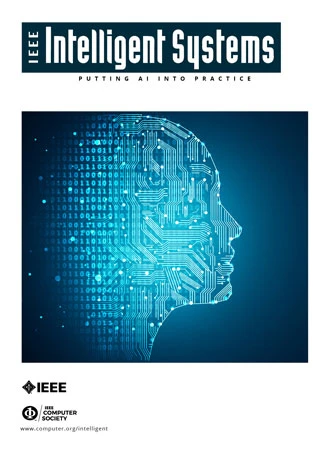实现负责任的推荐系统
IF 6.1
3区 计算机科学
Q1 COMPUTER SCIENCE, ARTIFICIAL INTELLIGENCE
引用次数: 0
摘要
推荐系统在许多方面改变了我们的数字体验。我们列举了它们对经济和人类产生的六种积极影响,如提高用户满意度、节省时间、拓宽用户视野以及积极的行为引导。然而,我们也必须认识到这些算法设计固有的潜在弊端。一个值得关注的问题是,这些算法通常会优先考虑部署这些算法的公司的利益,旨在最大限度地提高利润和用户参与度,而不是仅仅关注提升用户体验。因此,我们还列出并考虑了两个使用案例和六种对人类的长期负面影响,包括上瘾、批判性思维能力下降、自主性降低,以及越来越像人类的虚拟助手导致的人际关系削弱。尽管推荐系统的功用不可否认,但必须以批判的态度对待它们,提倡透明度、道德考量和用户授权,以确保它们成为充实而非剥削的工具。为了实现这一目标,我们提出了负责任的推荐系统(RRS)的理念和挑战。负责任的推荐系统扩展了普通的推荐系统,增加了与个人价值观和目标以及广泛接受的福祉和生活方式准则相关的内容。本文章由计算机程序翻译,如有差异,请以英文原文为准。
Toward Responsible Recommender Systems
Recommender systems have transformed our digital experiences in many regards. We enumerate six of their positive effects on the economy and humans, such as greater user satisfaction, time savings, broadening user horizons, and positive behavioral nudging. However, it is crucial to acknowledge the potential downsides inherent in their design. One significant concern is that these algorithms often prioritize the interests of the company deploying them, aiming to maximize profits and user engagement rather than solely focusing on enhancing user experience. Therefore, we also list and consider two use cases and six negative long-term impacts on humans, including addiction, reduced ability to think critically, less autonomy, and weakened human relationships caused by more and more human-like virtual assistants. Despite the undeniable utility of recommender systems, it is imperative to approach them critically, advocating for transparency, ethical considerations, and user empowerment to ensure that they serve as tools for enrichment rather than exploitation. To accomplish this, the idea and challenges of responsible recommender systems (RRSs) are presented. RRSs extend common recommender systems with components related to individual human values and goals as well as widely accepted well-being and lifestyle guidelines.
求助全文
通过发布文献求助,成功后即可免费获取论文全文。
去求助
来源期刊

IEEE Intelligent Systems
工程技术-工程:电子与电气
CiteScore
13.80
自引率
3.10%
发文量
122
审稿时长
1 months
期刊介绍:
IEEE Intelligent Systems serves users, managers, developers, researchers, and purchasers who are interested in intelligent systems and artificial intelligence, with particular emphasis on applications. Typically they are degreed professionals, with backgrounds in engineering, hard science, or business. The publication emphasizes current practice and experience, together with promising new ideas that are likely to be used in the near future. Sample topic areas for feature articles include knowledge-based systems, intelligent software agents, natural-language processing, technologies for knowledge management, machine learning, data mining, adaptive and intelligent robotics, knowledge-intensive processing on the Web, and social issues relevant to intelligent systems. Also encouraged are application features, covering practice at one or more companies or laboratories; full-length product stories (which require refereeing by at least three reviewers); tutorials; surveys; and case studies. Often issues are theme-based and collect articles around a contemporary topic under the auspices of a Guest Editor working with the EIC.
 求助内容:
求助内容: 应助结果提醒方式:
应助结果提醒方式:


